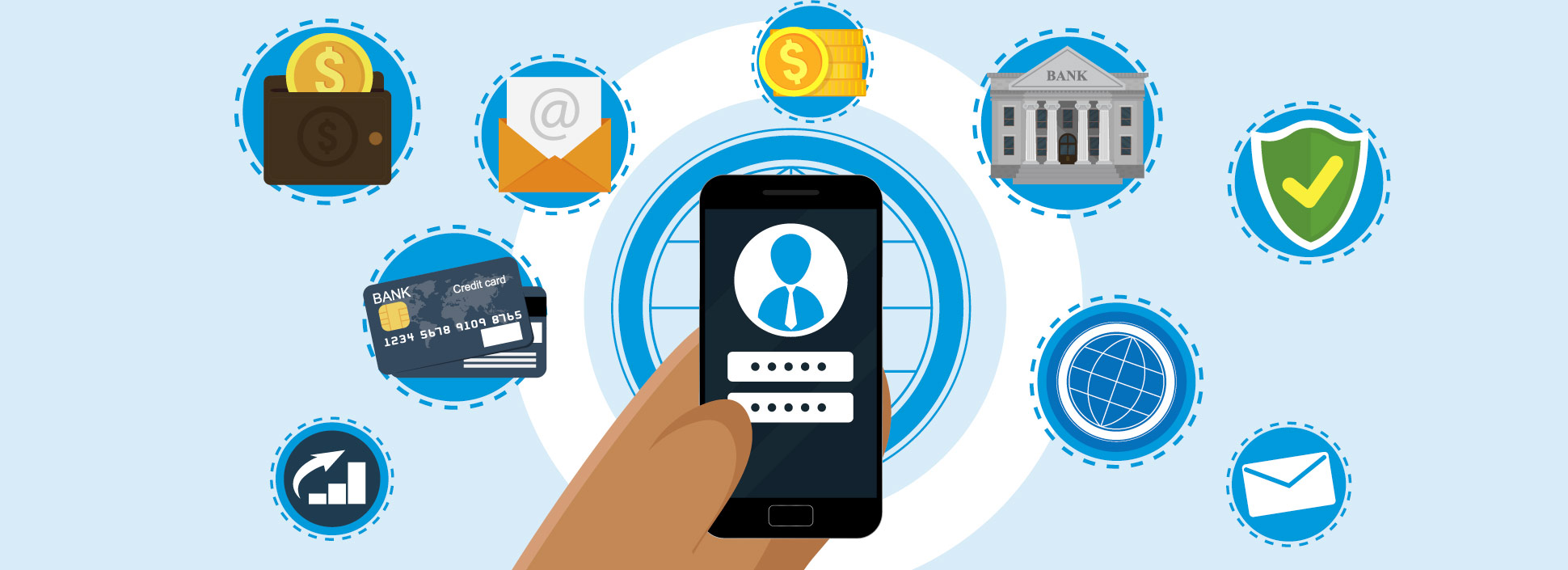Why a Separate Business Bank Account is Crucial for Your LLC
As a Limited Liability Company (LLC) owner, it’s essential to maintain a clear separation between personal and business finances. This separation is crucial for liability protection, tax advantages, and easier accounting. A dedicated business bank account can help LLC owners achieve this separation and maintain a clear financial picture.
One of the primary benefits of a separate business bank account is liability protection. By keeping personal and business finances separate, LLC owners can protect their personal assets in case the business is sued or incurs debt. This protection is especially important for LLCs, as it helps to maintain the integrity of the business entity.
In addition to liability protection, a separate business bank account can also provide tax advantages. By keeping business expenses separate from personal expenses, LLC owners can more easily track and deduct business expenses on their tax returns. This can help to reduce the business’s tax liability and increase its overall profitability.
Easier accounting is another benefit of a separate business bank account. By keeping all business transactions in one place, LLC owners can more easily track income and expenses, and make financial decisions based on accurate and up-to-date information. This can help to streamline financial operations and reduce administrative burdens.
When selecting a business bank account, LLC owners should look for features such as low fees, high-yield interest rates, and online banking capabilities. These features can help to reduce costs, increase earnings, and improve financial management. By choosing the right business bank account, LLC owners can set their business up for success and achieve their financial goals.
In the next section, we’ll discuss the key features to look for in a business bank account, and provide tips on how to choose the best bank for your business needs.
Key Features to Look for in a Business Bank Account
When selecting a business bank account, it’s essential to consider the features that will help your LLC succeed. A good business bank account should offer a combination of low fees, high-yield interest rates, and convenient banking services. Here are some key features to look for:
Low fees: Look for a bank account with low or no monthly maintenance fees, as well as low fees for transactions such as ATM withdrawals and wire transfers. Some banks may also offer fee-free services for LLCs, such as free bill pay or free online banking.
High-yield interest rates: Consider a bank account that offers a high-yield interest rate, which can help your LLC earn more money on its deposits. Some banks may offer tiered interest rates, which means that the interest rate increases as the balance in the account grows.
Online banking: Online banking is a must-have for any business, as it allows you to manage your finances from anywhere. Look for a bank that offers a user-friendly online banking platform, as well as mobile banking apps for on-the-go access.
Mobile deposit capabilities: Mobile deposit capabilities allow you to deposit checks remotely, which can save time and increase efficiency. Look for a bank that offers mobile deposit capabilities, as well as a high deposit limit.
Scalability and flexibility: As your business grows, your bank account should be able to grow with it. Look for a bank that offers scalable services, such as the ability to add or remove users, as well as flexible payment options.
When evaluating business bank accounts, consider the unique needs of your LLC. For example, if you have a high-volume business, you may need a bank account with a high transaction limit. If you have a low-volume business, you may be able to get by with a bank account that has lower fees.
By considering these key features, you can find a business bank account that meets the unique needs of your LLC and helps you achieve your financial goals.
In the next section, we’ll discuss how to choose the best bank for your business needs, including tips on how to research and compare different banks.
How to Choose the Best Bank for Your Business Needs
Choosing the right bank for your LLC can be a daunting task, especially with so many options available. However, by doing your research and comparing different banks, you can find a bank that meets your unique needs and helps you achieve your financial goals.
Here are some tips to help you choose the best bank for your business needs:
Read reviews: Look for reviews from other business owners who have used the bank’s services. This can give you an idea of the bank’s strengths and weaknesses, as well as its reputation in the business community.
Ask for referrals: Ask other business owners or financial advisors for recommendations. They may have experience with a particular bank and can provide valuable insights.
Evaluate customer service: Good customer service is essential for any business. Look for a bank that offers 24/7 customer support, as well as a user-friendly online banking platform.
Compare fees: Different banks have different fee structures, so it’s essential to compare fees before making a decision. Look for a bank that offers low or no fees for services such as ATM withdrawals and wire transfers.
Consider the bank’s experience with LLCs: Not all banks have experience working with LLCs, so it’s essential to find a bank that understands the unique needs of your business. Look for a bank that has a dedicated team for LLCs and offers specialized services such as payroll processing and accounts payable management.
By following these tips, you can find a bank that meets your unique needs and helps you achieve your financial goals. Remember to do your research and compare different banks before making a decision.
In the next section, we’ll compare and contrast popular business bank accounts, including Chase Business Complete, Wells Fargo Business Choice, and Bank of America Business Advantage.
Top Business Bank Accounts for LLCs: A Comparison
When it comes to choosing a business bank account for your LLC, there are many options to consider. Here, we’ll compare and contrast three popular business bank accounts: Chase Business Complete, Wells Fargo Business Choice, and Bank of America Business Advantage.
Chase Business Complete: This account offers a low monthly maintenance fee of $15, which can be waived if you maintain a minimum balance of $1,500. It also offers a high-yield interest rate of 1.5% APY, as well as online banking and mobile deposit capabilities.
Wells Fargo Business Choice: This account offers a low monthly maintenance fee of $10, which can be waived if you maintain a minimum balance of $1,000. It also offers a high-yield interest rate of 1.25% APY, as well as online banking and mobile deposit capabilities.
Bank of America Business Advantage: This account offers a low monthly maintenance fee of $12, which can be waived if you maintain a minimum balance of $1,500. It also offers a high-yield interest rate of 1.5% APY, as well as online banking and mobile deposit capabilities.
All three accounts offer a range of benefits, including low fees, high-yield interest rates, and convenient banking services. However, the best account for your LLC will depend on your specific needs and goals.
For example, if you’re looking for a low-fee account with a high-yield interest rate, Chase Business Complete may be the best option. On the other hand, if you’re looking for an account with a low minimum balance requirement, Wells Fargo Business Choice may be the way to go.
Ultimately, the best bank for your LLC will depend on your unique needs and goals. By doing your research and comparing different accounts, you can find a bank that meets your needs and helps you achieve your financial goals.
In the next section, we’ll discuss specialized banking services that can benefit LLCs, such as payroll processing, accounts payable, and accounts receivable management.
Specialized Banking Services for LLCs: What to Look for
As an LLC owner, you may need specialized banking services to manage your business finances effectively. These services can help streamline financial operations, reduce administrative burdens, and improve cash flow management.
Payroll processing: A good business bank account should offer payroll processing services that can help you manage your employees’ salaries, benefits, and taxes. Look for a bank that offers automated payroll processing, direct deposit, and tax compliance services.
Accounts payable and accounts receivable management: A business bank account that offers accounts payable and accounts receivable management services can help you manage your invoices, payments, and cash flow more effectively. Look for a bank that offers online invoicing, payment tracking, and cash flow forecasting tools.
Cash flow management: A good business bank account should offer cash flow management services that can help you manage your business’s cash flow more effectively. Look for a bank that offers cash flow forecasting, accounts payable and accounts receivable management, and invoice financing services.
Merchant services: If your business accepts credit card payments, you may need a business bank account that offers merchant services. Look for a bank that offers competitive rates, flexible payment terms, and secure payment processing.
By considering these specialized banking services, you can find a business bank account that meets your unique needs and helps you manage your business finances more effectively.
In the next section, we’ll discuss best practices for managing your business finances, including budgeting, cash flow management, and financial reporting.
Managing Your Business Finances: Best Practices for LLC Owners
As an LLC owner, managing your business finances effectively is crucial for success. Here are some best practices to help you manage your business finances:
Budgeting: Create a budget that outlines projected income and expenses for your business. This will help you make informed financial decisions and ensure that you have enough cash flow to meet your financial obligations.
Cash flow management: Monitor your cash flow regularly to ensure that you have enough funds to meet your financial obligations. Consider using a cash flow forecasting tool to help you predict future cash flow.
Financial reporting: Regular financial reporting is essential for making informed financial decisions. Consider using a financial reporting tool to help you track your business’s financial performance.
Regular financial reviews: Regular financial reviews can help you identify areas for improvement and ensure that your business is on track to meet its financial goals. Consider scheduling regular financial reviews with your accountant or financial advisor.
Planning for future growth: As your business grows, your financial needs will change. Consider planning for future growth by creating a financial plan that outlines projected income and expenses for the next 3-5 years.
By following these best practices, you can effectively manage your business finances and ensure that your LLC is on track to meet its financial goals.
In the next section, we’ll discuss common mistakes to avoid when selecting a business bank account, such as overlooking fees, neglecting to read reviews, and failing to evaluate customer service.
Avoiding Common Mistakes: Pitfalls to Watch Out for When Choosing a Business Bank Account
When choosing a business bank account, there are several common mistakes to avoid. These mistakes can impact your business operations and ultimately affect your bottom line.
Overlooking fees: One of the most common mistakes is overlooking fees associated with the bank account. Make sure to carefully review the fee structure and understand what you will be charged for.
Neglecting to read reviews: Reading reviews from other business owners can provide valuable insights into the bank’s customer service, fees, and overall experience. Don’t neglect to read reviews before making a decision.
Failing to evaluate customer service: Customer service is crucial when it comes to business banking. Make sure to evaluate the bank’s customer service and ensure that they can meet your needs.
Not considering scalability: As your business grows, your banking needs will change. Make sure to consider scalability when choosing a bank account and ensure that the bank can meet your growing needs.
Not evaluating online banking capabilities: Online banking is a crucial feature for business owners. Make sure to evaluate the bank’s online banking capabilities and ensure that they meet your needs.
By avoiding these common mistakes, you can ensure that you choose the best bank for your business needs and avoid any potential pitfalls.
In the next section, we’ll summarize the key takeaways from the article and reiterate the importance of choosing the right business bank account for your LLC.
Conclusion: Finding the Best Bank for Your LLC
Choosing the right business bank account for your LLC is a crucial decision that can impact your business’s financial success. By considering the key features, benefits, and potential pitfalls of different bank accounts, you can make an informed decision that meets your unique needs and goals.
In this article, we’ve discussed the importance of separating personal and business finances, the essential features to look for in a business bank account, and how to choose the best bank for your business needs. We’ve also compared and contrasted popular business bank accounts, discussed specialized banking services, and provided best practices for managing your business finances.
By following these tips and doing your research, you can find the best bank for your business account LLC and set your business up for success. Remember to consider your unique needs and goals, and don’t be afraid to ask questions or seek advice from a financial expert.
Ultimately, the right business bank account can help you streamline your financial operations, reduce administrative burdens, and achieve your business goals. By choosing the best bank for your LLC, you can take the first step towards financial success and set your business up for long-term growth and prosperity.







